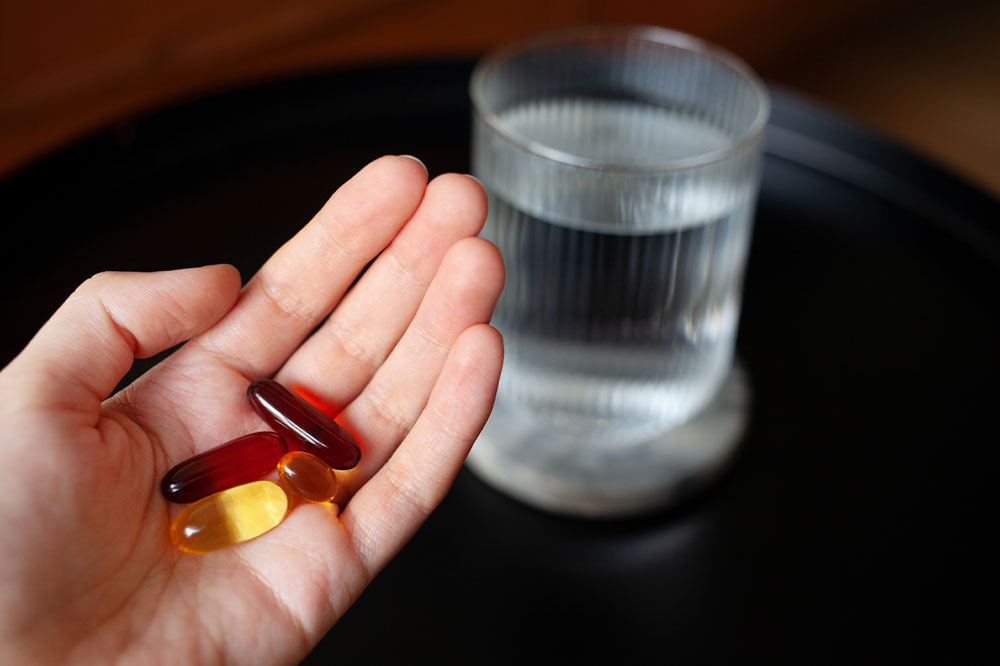9 supplements that help deal with eczema

Eczema is a prevalent skin condition that causes redness, itchiness, and inflammation. It can affect the face, hands, or feet, in addition to other body parts. The most prevalent form of eczema affects almost one out of five children and adults in the country. In some cases, it can be excruciating for both baby and mom and challenging to treat. This article will explain these causes so we can learn more about eczema.
Vitamin D
Vitamin D3 is a fat-soluble vitamin that plays a role in cell growth, bone health, and the immune system. It is also known as cholecalciferol. Vitamin D3 can be found in foods like salmon and tuna (fresh fish), but it is more challenging to get from a vegetarian or vegan meal plan. For example, eggs contain vitamin D2 instead of D3; dairy products like yogurt are fortified with this nutrient; fortified cereals may have less than 5% of the daily value for adults.
Fish oil
In studies published by respected medical journals such as The Journal Of Allergy And Clinical Immunology, fish oil is an excellent supplement that alleviates pain and suffering through eczema. Omega-3 fatty acids are essential for the skin because they help to reduce inflammation. They also help with brain and heart health, which are vital to overall health. If one has eczema or other skin conditions, it is best to eat more fish and ensure that the meal plan contains more omega-3s than usual—they can be found in many foods like flaxseeds and walnuts.
If a person has been diagnosed with eczema but is unsure how to treat it by oneself (or would like extra help), they should try taking fish oil supplements instead of over-the-counter prescriptions.
Zinc
Zinc is a vital mineral that helps to reduce inflammation and may be one of the most effective supplements for eczema. It can be found in oysters, dairy, legumes, beef, turkey, and eggs. Zinc can also be taken as a supplement. Many scientific studies suggest that zinc deficiencies are related to an increased risk of eczema. If a person is concerned about their zinc levels, it is best to see the doctor. They can help assess their adequacy and recommend a supplement if needed.
Selenium
Selenium is a mineral that helps to reduce inflammation and improve the immune system. It helps to prevent damage from free radicals and may reduce inflammation. It also helps reduce eczema symptoms, such as itching and redness. Selenium can be found in fish, meat, eggs, and mushrooms.
Melatonin
Melatonin is a sleep-regulating hormone naturally produced in our body by the pineal gland in the brain. It is available as a supplement and can help with jet lag, insomnia, and other sleep problems. Melatonin supplements are most effective before bedtime because they promote restful sleep. One may feel groggy in the morning if melatonin pills are taken before bedtime on an empty stomach (no food). However, if taken with food, there will be less of an effect during the waking hours. It is because digestion delays the absorption of naturally occurring hormones into circulation during regular eating throughout daily life.
Turmeric
Turmeric has potent anti-inflammatory properties. It helps reduce itching, redness, and swelling. Turmeric can be used topically or taken internally. One can also use it in cooking or as a supplement. It is important to remember that selenium is not recommended for pregnant women or anyone with a vitamin E deficiency. Turmeric is available in capsule form or as a powder and is also known as a supplement. Turmeric can also be used in cooking or with other turmeric foods.
Primrose oil
Primrose oil contains abundant gamma-linolenic acid (GLA) and omega-6 fatty acids. This fatty acid is responsible for helping to reduce inflammation. It also contains antioxidants that help to reduce inflammation and redness. History suggests that Primrose oil has been used as a remedy for eczema by the native Americans. This supplement can be used by anyone with eczema who wants to ease their symptoms while improving overall health.
Coconut oil
Coconut oil is an excellent moisturizer for eczema. It has been used to treat lesions, but it is unclear if this effect can be attributed to coconut oil. The main ingredient in coconut oil that may help with eczema is lauric acid, which has antibacterial properties and helps maintain a healthy skin barrier. Additionally, coconut oil can be used as an emollient or moisturizing agent to soothe dryness and irritation caused by chronic conditions like eczema. It is recommended to soak up the areas of skin affected by eczema for about 20 minutes before wiping them off with a wet towel. Doctors suggest applying coconut oil throughout the skin and allowing it to rest for up to 30 minutes before bathing can help smoothen the skin and manage eczema effectively.
Probiotics
Probiotics are good bacteria that help the body stay healthy and fight off the bad ones. Probiotics can be found in foods like yogurt and probiotic supplements, but the most likely one is not getting enough of them by eating plain old yogurt. Probiotics have been shown to help with eczema because they help with digestion, which is essential for keeping one’s immune system strong. It can be noticed that sometimes eating some food item can cause an allergic reaction or food sensitivity. That is because something in it (like gluten) triggers an allergy response in the body—but if this happens all day long, it could lead to other health issues. Probiotics prevent these side effects by helping fight off harmful bacteria while promoting healthy levels of inflammation throughout the body.
The supplements mentioned earlier are some of the best to help manage eczema. One should remember that it is not just about medicine but also about keeping oneself healthy and fit. So, one should try these supplements and see what works for oneself.
















